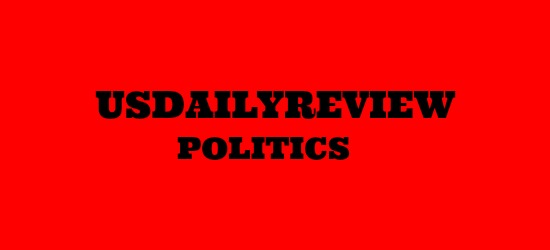By Plaintiffs’ Executive Committee representing the 9/11 Families and Victims
Statement of James Kreindler (partner, Kreindler & Kreindler, New York) and Sean Carter (partner, Cozen O’Connor, Philadelphia), CO-CHAIRS of the Plaintiffs’ Executive Committee representing the 9/11 Families and Victims.
On Sunday night, 60 Minutes aired a compelling, thorough, and immensely important story on still-classified evidence of Saudi involvement in the 9/11 attacks, called “28 Pages.” It is the most recent example of why 60 Minutes remains one of America’s most respected and consequential investigative news outlets.
In the segment, members of the blue ribbon 9/11 Commission and the Co-Chairs of the separate Congressional Joint Inquiry into 9/11 confirmed that their investigations revealed tangible evidence of possible Saudi government involvement in the 9/11 attacks, much of which remains unexplained and unresolved. The evidence includes details of critical contacts in the United States among Saudi government employees with alleged terrorist ties, two of the 9/11 hijackers, and the notorious al Qaeda cleric Anwar al Awlaki. Former Senator Bob Graham, who chaired the Congressional Joint Inquiry into 9/11, was asked whether the classified pages implicate the Saudi government, rich people in Saudi Arabia, or charities. His response: “All of the above.”
Not long after the report aired, the Saudi embassy “responded” to the report, raising two “arguments.” First, despite the contrary statements of three 9/11 Commission members in the segment itself, the Saudis said that the 9/11 Commission had “confirmed that there is no evidence that the government of Saudi Arabia supported or funded Al-Qaeda.” In support of this theory the Kingdom once again cited (as it has done for more than a decade) a single sentence in the 9/11 Commission report that the Commission had not found evidence that “the Saudi government as an institution or senior Saudi officials individually funded the organization.” Second, the Kingdom said that “on three occasions – 2015, 2008 and 2006” the “court of appeals” had dismissed lawsuits against the Kingdom, urging that the “court findings were based on the sheer absence of any substantive claims against Saudi Arabia, plain and simple.”
In America, the phrase “plain and simple” typically follows a straightforward statement of truth, which is most clearly not something the Saudi embassy understands.
In fact, the 9/11 Commission did not exonerate the Saudis of involvement in 9/11, as the actual members of the Commission made abundantly clear in the very story the Saudi embassy was purporting to address in its “response.” Asked directly about the very sentence the Saudis relied upon in their later statement, 9/11 Commission member Bob Kerrey emphatically stated “It’s not an exoneration. What we said – we did not, with this report, exonerate the Saudis.” Kerrey went on to explain that “you can’t provide the money for terrorists and then say, ‘I don’t have anything to do with what they’re doing.” Former Senator Kerrey’s statements confirmed the most natural reading of the sentence the Kingdom invokes – it leaves conspicuously open, and thus suggests, that the Commission had found evidence that elements of the Saudi government and non-senior Saudi officials aided al Qaeda and those attacks. And in fact, every 9/11 Commission member who has publicly commented on the sentence has rejected the Kingdom’s implausible and self-serving (mis)reading of it.
The Kingdom’s suggestion that the “court of appeals” has on three occasions dismissed it for “sheer absence of any substantive claims” is a fabrication of equal measure, and blatantly false. In fact, the Court of Appeals has considered the case against Saudi Arabia twice, first in 2008 and most recently in 2013. Although the Court of Appeals initially dismissed Saudi Arabia on jurisdictional grounds in 2008, it reversed itself and reinstated Saudi Arabia as a defendant in 2013. And even in the 2008 decision, the Court of Appeals noted that the 9/11 families had come forward with a “wealth of evidence, conscientiously cited to published and unpublished sources” in support of their claims.
In fact, the Kingdom has never been willing to address the merits of the families’ claims – it has at every stage hidden behind the defense of sovereign immunity, maintaining that US courts do not have jurisdiction to even consider the families’ evidence that Saudi agencies and employees supported al Qaeda and the hijackers in carrying out the worst terrorist attacks in history on US soil.
If the Kingdom is as confident as it purports to be about its innocence, there is a simple way to prove it – just withdraw the immunity defense it has been hiding behind for 12 years and answer the charges on the merits, plain and simple.
A bill pending in the Senate and House, called the Justice Against Sponsors of Terrorism Act (JASTA), would require the Kingdom to do so. It simply says that if there is plausible evidence that a foreign state aided a terrorist attack on US soil, that foreign state has to respond to that evidence in US courts on the merits. That’s just common sense and obviously fair.
The Kingdom’s flailing response to 60 Minutes’ powerful segment only makes it all the more clear that the 28 pages and other evidence of Saudi involvement must be released, and that JASTA should be passed now.
SOURCE Plaintiffs’ Executive Committee representing the 9/11 Families and Victims

